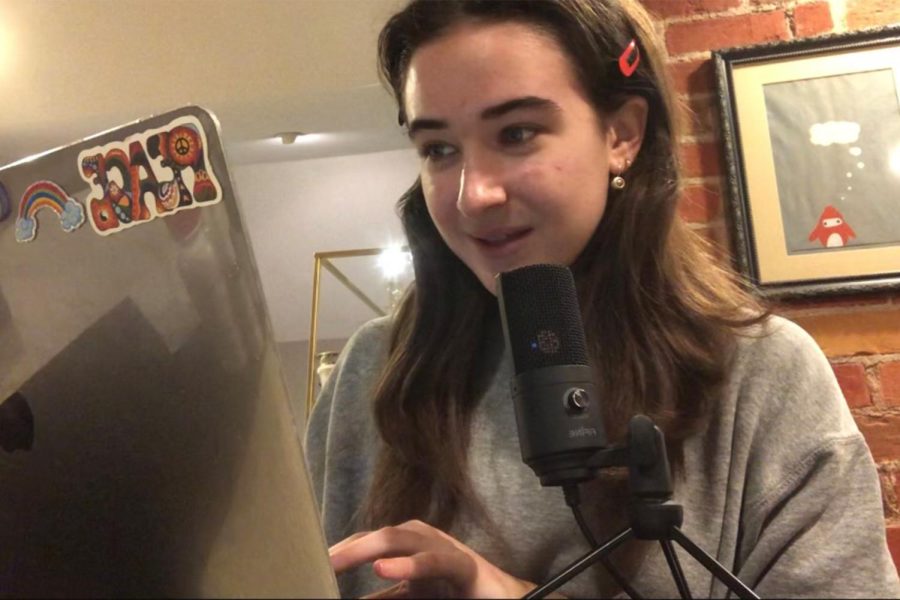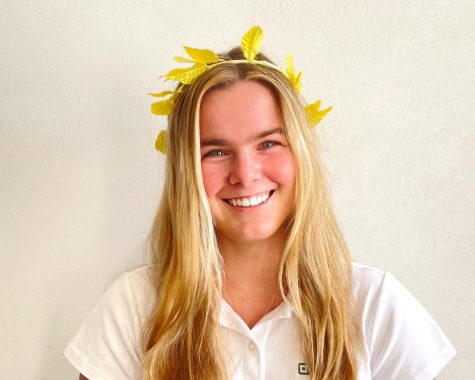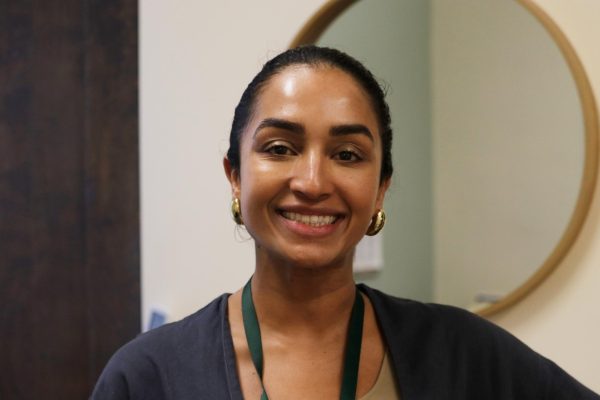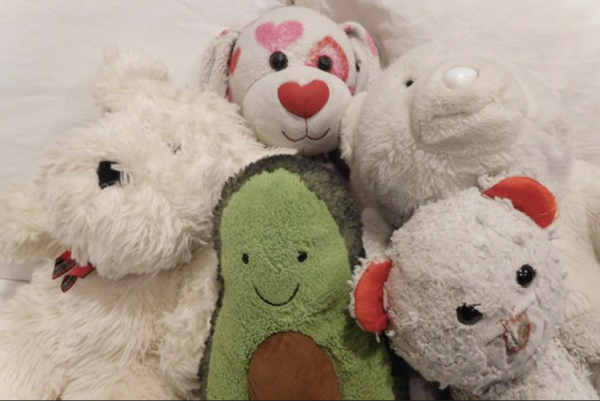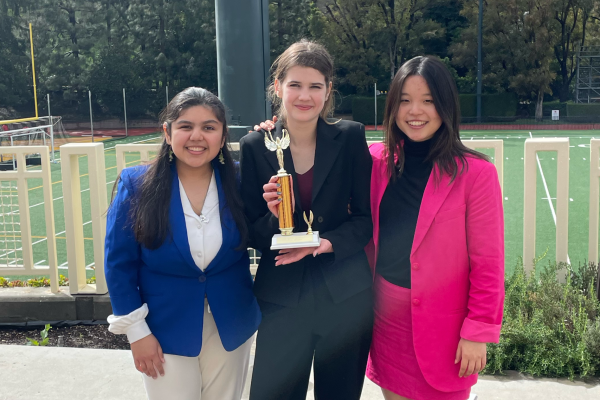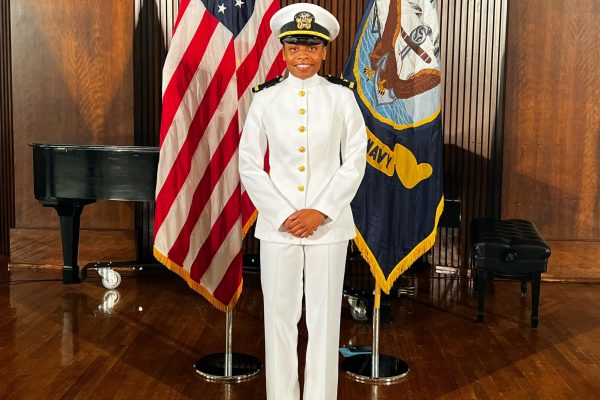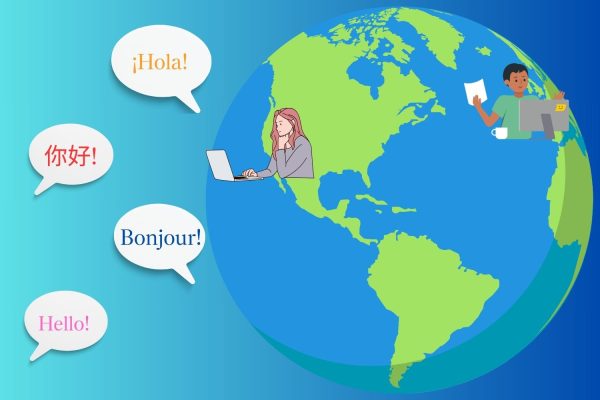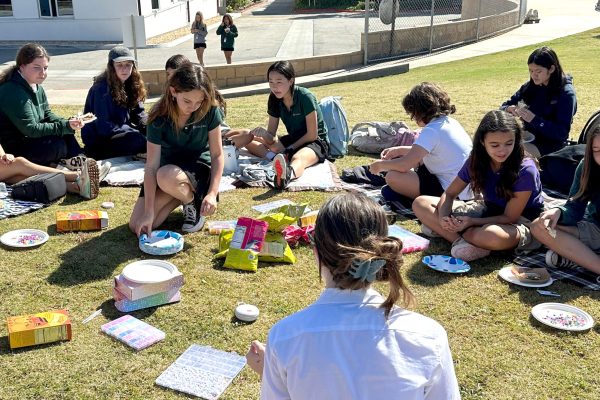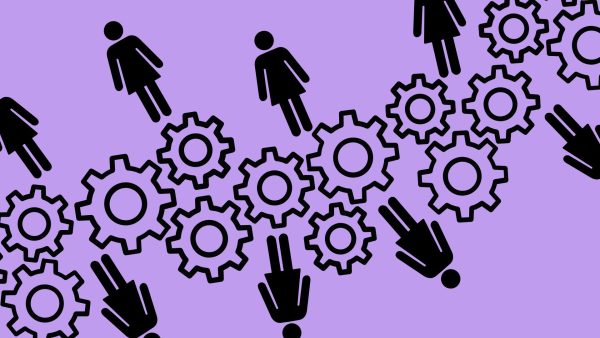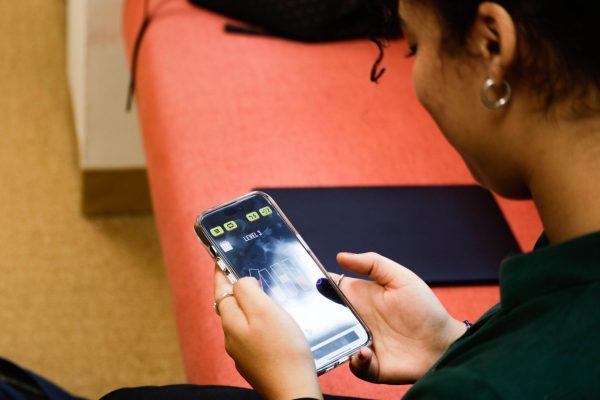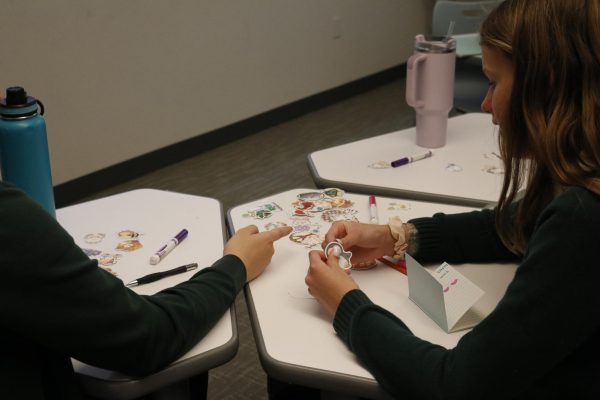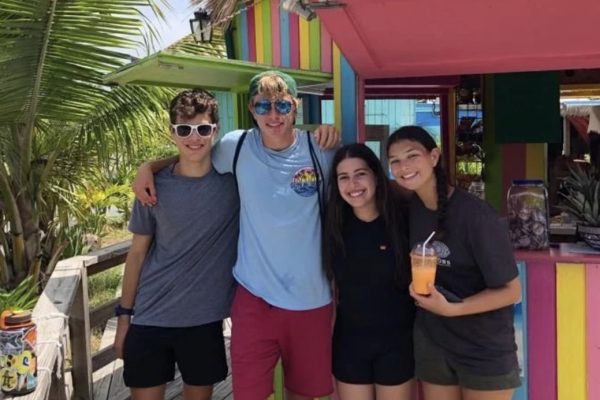Brainstorm: Q&A with Maggie Hamilton on neuroscience podcast
Photo credit: Margaret Hamilton
Maggie Hamilton records an episode of “Brain Breakdown Podcast.” She took her passion for leaning about the brain and turned it into a podcast. “It’s accessible to a lot of people because you can find it on Spotify,” Hamilton said. “You can listen to it when you’re in the car or doing just regular tasks, and it doesn’t require sitting down and reading articles.”
January 11, 2022
Everyone has one, but how much do people really know about the brain? Senior Maggie Hamilton has started a podcast called “Brain Breakdown Podcast” all about neuroscience. The Oracle caught up with Hamilton to talk about her experiences creating the podcast.
What enticed you to start this podcast?
Margaret Hamilton [MH]: So, I knew I wanted to start a podcast because I originally got interested in neuroscience when I was in 11th grade, and there wasn’t a bunch of accessible sources that I could use to learn about it. I was left with summer programs, but obviously that costs money and it takes a lot of time. So, I thought that a great way to bring it to people who are interested in it, but don’t have a lot of time to dedicate to it, was podcasts. It’s accessible to a lot of people because you can find it on Spotify. You can listen to it when you’re in the car or doing just regular tasks, and it doesn’t require sitting down and reading articles.
Where did your interest in and knowledge of neuroscience come from?
[MH]: I did take summer courses. I took one in 10th grade and 11th grade, and then between then I’ve gotten involved with a lab at UCLA to learn about processing EEG data — that’s been a pretty crazy journey. But I’m still learning obviously. There’s so much that I can’t comprehend yet, which I’m excited to learn about in college. But this podcast has been another step in my learning ladder.
What’s the process of developing this podcast been like?
[MH]: It’s been pretty complicated because of other extracurricular activities that I have. I don’t really have a lot of time to dedicate to it, but I try when I can. I hope to do a lot over the break. I just bought a microphone off of Amazon and I sit in my room and record. I write out a script of things I want to say, I do some research days before, write what I want to say, and then I just read it and add some stuff to it as I’m speaking. And then I use anchor for Spotify, which is so easy. You just create an MP3 and then it uploads right to Spotify.
What excites you most about this podcast?
[MH]: I think what excites me most is being able to talk about my love of neuroscience to other people because it’s something that I like don’t get to share too often at school, because we obviously don’t learn about neuroscience at school. But, I can talk about it to a platform of people, share my love and get them interested. Also, to keep them wanting to learn more and wanting to know more and then, eventually, do their own research if they want to learn more about it — I think that’s what excites me most.
What are you hoping the future of your podcast looks like?
[MH]: I actually have an episode that I’m planning right now about a man who experienced permanent amnesia when his hippocampus was removed. So, that should be up on during winter break. But, I hope that people will send me what they want to learn about so I can talk about stuff that interests other people as well, and talk about relevant current event topics that apply — so I’m not just giving you the facts and not how they apply to today. I’m hoping to connect it to current events and I hope to have more time to release episodes as well.





![Freshman Milan Earl and sophomore Lucy Kaplan sit with their grandparents at Archer’s annual Grandparents and Special Friends Day Friday, March 15. The event took place over three 75-minute sessions. “[I hope my grandparents] gain an understanding about what I do, Kaplan said, because I know they ask a lot of questions and can sort of see what I do in school and what the experience is like to be here.](https://archeroracle.org/wp-content/uploads/2024/03/grandparents-day-option-2-1200x800.jpg)













































